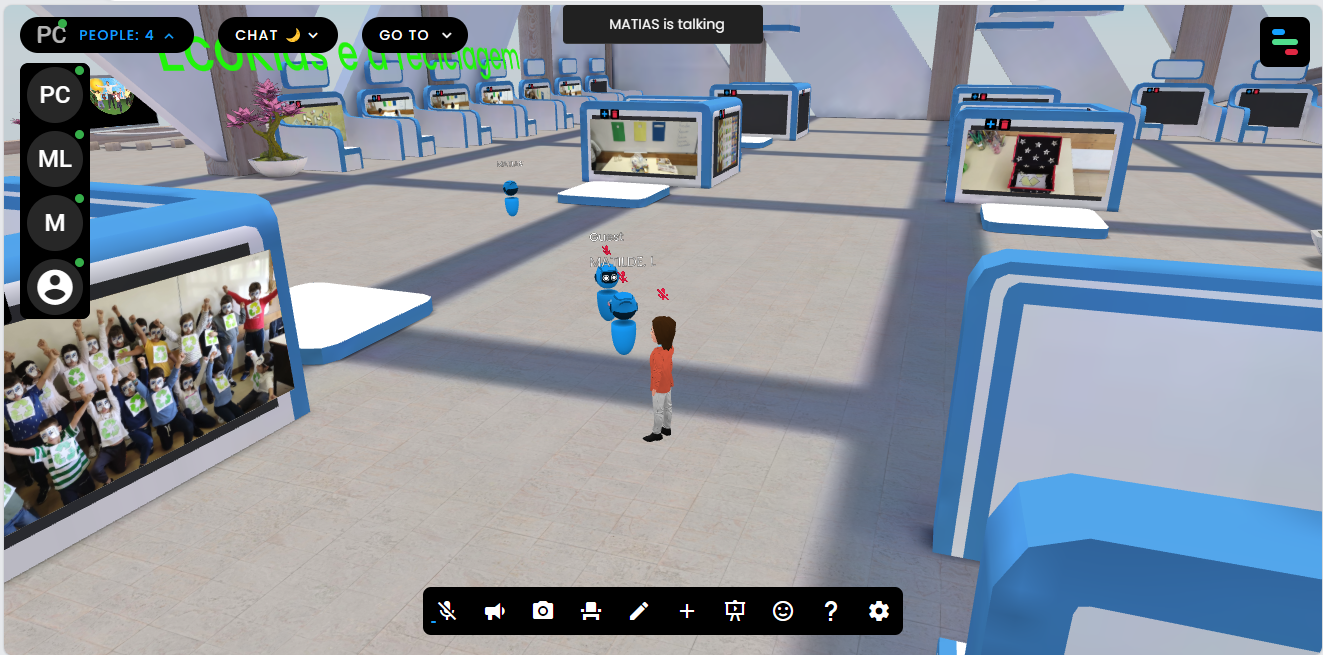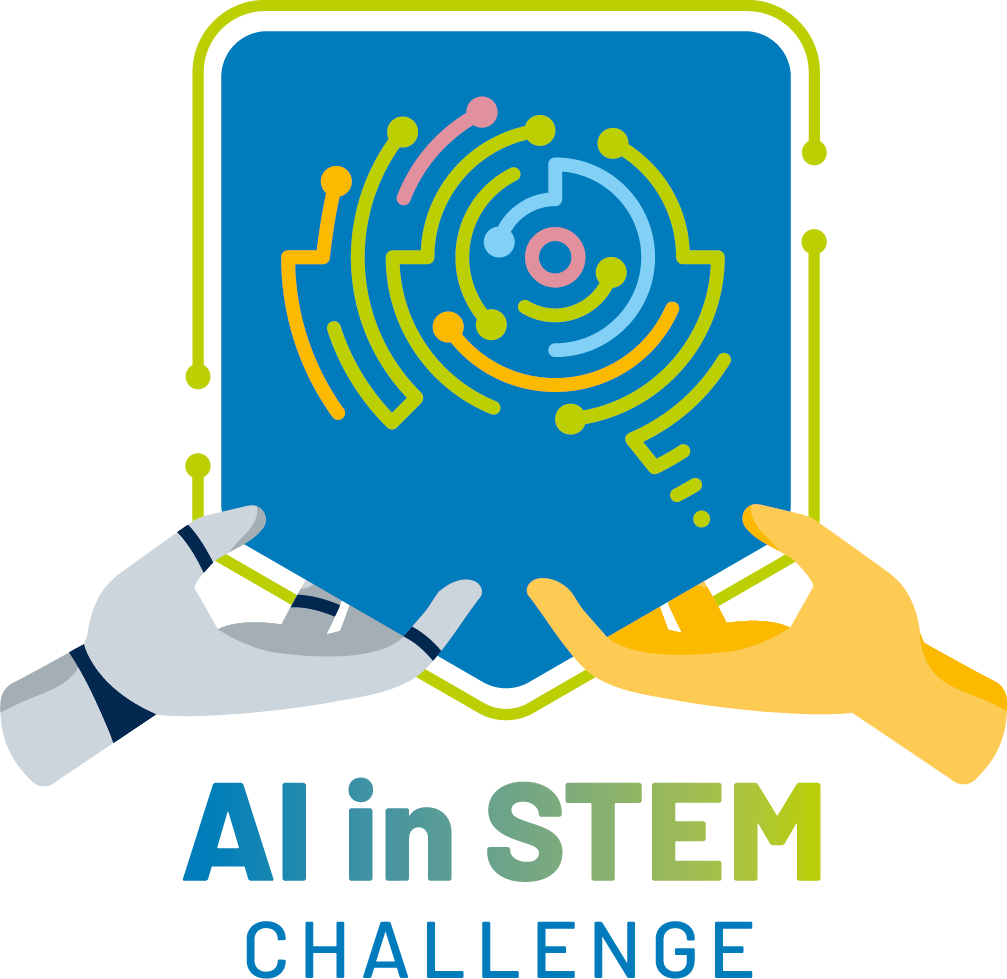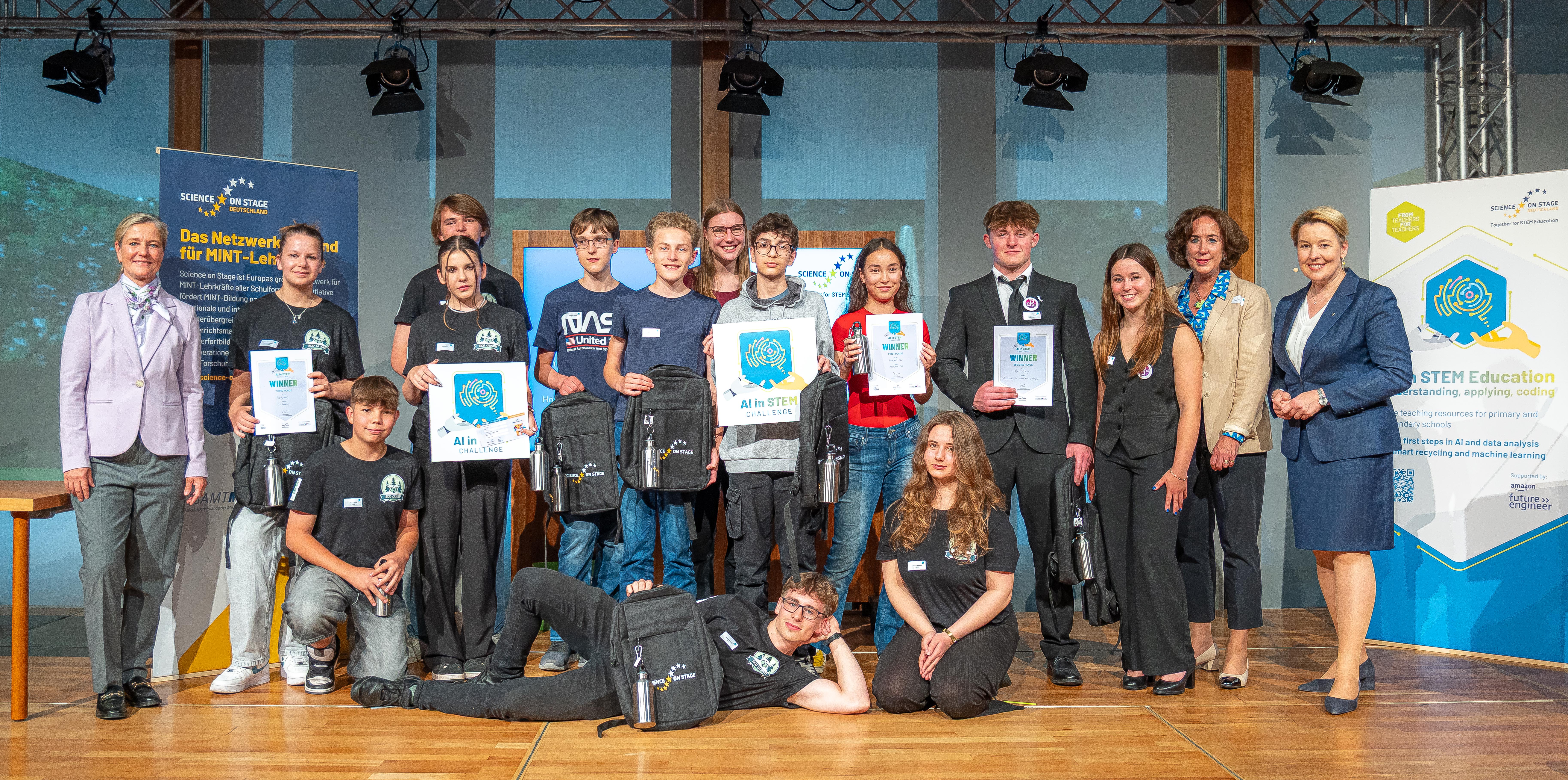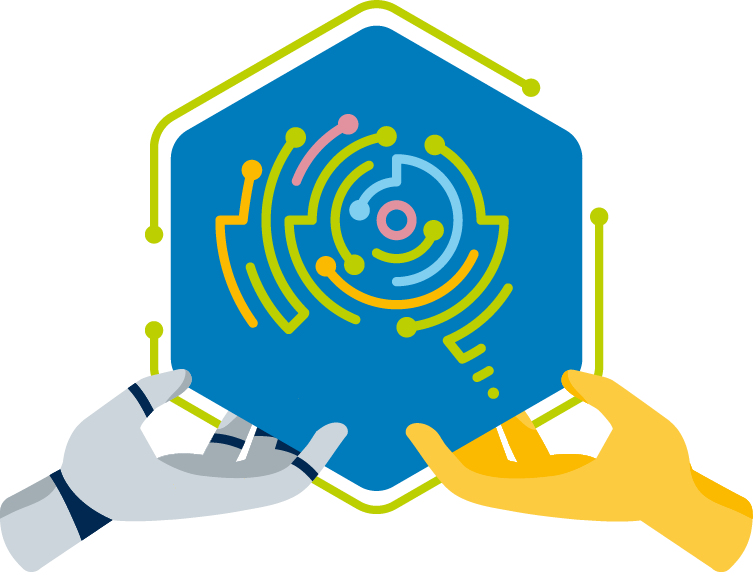AI in STEM Education and Challenge
Artificial intelligence (AI) is a socially relevant topic and currently a big part of the public debate. For some time now, the technologies behind AI systems have been shaping our lives, and they continue to be improved every day. Applications such as chatbots have found their way into everyday life, school and work; frameworks, guidelines and curricula are being developed and updated at pace.
To support teachers in their commitment to not only follow but shape and reflect these developments and challenges, Science on Stage organised the international project AI in STEM Education. A group of authors – active teachers from four different countries – has since then published five peer-reviewed and classroom-tested teaching units on artificial intelligence and machine learning. Thanks to the support of Amazon Future Engineer, the materials are available as ready-to-use open educational resources in English and German, with units for primary and secondary school. They offer interactive simulations, downloadable worksheets, hands-on project activities involving crafting, robotics and coding, career orientation resources as well as background information on the theory and practice of teaching AI.
The project was organised by Science on Stage Germany and supported by the other members of Science on Stage Europe.
Our AI in STEM education teaching materials aim to help students to better understand this technology, to deal with its application and to try out the use of AI themselves. They provide teachers with tools and methods related to AI so that they can address the topic interactively and in an age-appropriate manner.
The teaching materials present innovative ideas from European teachers on the following topics:
- First Steps in AI and Data Analysis: getting to know generative AI and big data
- STEM resources 4.0: creating your own digital educational resources using AI and block-based programming
- Machine Learning in School: understanding and experimenting with artificia neural networks
- EcoKids Teach AI and Recycling Smart: programming waste separation with the help of AI using Scratch/PictoBlox (for younger students) and Python (for advanced students)
The materials are suited for teachers with and without previous experience in the subject, and offer ready-to-use teaching units and project ideas for primary and secondary school. They are available digitally on our website and free of charge to everyone.
The recording of a webinar by authors Cláudia Meirinhos and Paul Tyler on their primary school projects "EcoKids Teach AI" and "First Steps in AI and Data Analysis" is available on our YouTube channel.

Grants for teacher training in the field of AI Literacy
Are you interested in organising teacher training on our teaching materials or other topics related to AI literacy at your school? We offer grants for workshops and seminars in selected countries for the year 2026. Find more information about the funding scheme and the application forms here.
The AI in STEM Challenge

Science on Stage celebrated the publication of the AI in STEM Education teaching materials by launching a Europe-wide competition for STEM teachers and their students on the topic of AI: the AI in STEM Challenge.
After the call was published in August 2024, teams all around Europe and beyond kicked into action, developing their own ideas and projects about AI solutions for local, national or global challenges. By February 23rd, 2025, dozens of applications from 17 countries, involving 406 participants (142 teachers along with 264 students aged 10 to 18), had poured in. An international jury then selected the ten best teams who were invited to the grand finale in Berlin on June 6th, 2025.
Science on Stage Germany invited teachers and their students throughout Europe to apply with an innovative approach to using AI.
The students were asked to:
- identify a challenge, regionally or globally
- explore how AI can help solve this problem
- design, code, and refine their own AI application
Suggested topics or focus areas were: sustainability and environment, health, mobility, diversity, inclusion, etc.
All European primary and secondary STEM teachers or teachers in training with their students were eligible to apply.
Applicants were asked to:
- Develop a project with their students and document the implementation in English in the form of a poster and short film (max. 2 minutes). The application was submitted online.
What were the evaluation criteria?
- Creativity, activity of the students, involvement of the environment (school, city, region), innovation, sustainability, possible applications in practice and presentation of the results.
What were the prizes?
- For the teachers of the three best teams selected at the final event in Berlin: participation in the next European Science on Stage festival
- For students: backpacks for the students of the three winning teams, refill bottles for all finalist teams
- Each student and teacher submitting an application received a certificate of participation.
The finalists
The ten selected projects presented solutions for how specific uses of AI could benefit society, our environment or local communities. They impressed the jury with their entrepreneurial spirit, their creativity and innovation, the students' involvement and learning growth as well as the presentation of their projects.
At the final event in Berlin, the teams wowed the audience – among them VIP guests Franziska Giffey, Mayor of Berlin and Senator for Economic Affairs, Energy and Public Enterprises, and Beatrice Bracklo, Director Public Policy DACH at Amazon – with their presentations on stage and their creative stand exhibiting their innovative projects.
Learn more about the ten finalist teams and check out their project videos and posters below.
"A la recherche du temps perdu" from Vittorio Veneto, Italy
A project by teacher Conny Fornelli and her 5th-grade students from A. Parravicini Primary School that aims to help people suffering from Alzheimer's or dementia with an AI assistant trained to recognize their domestic environment and its characteristic objects. View the project poster and the project video.
"Saving Patella Ferruginea" from Algeciras, Spain
This sustainability-oriented project from La Inmaculada school explores marine life and presents a solution for preserving an endangered limpet species with a trained machine learning model integrated into an autonomous monitoring system, highlighting the potential of innovative solutions in safeguarding biodiversity. View the project poster and the project video.
"See4me" from Ankara, Türkiye
A team from Atatürk Mesleki ve Teknik Anadolu Lisesi developed, trained and tested AI-assisted applications targeted to help visually impaired people with navigating everyday life. View the project poster and the project video.
"Intelligent Nose – AI for honeytype detecting" from Soest, Germany
A practice-oriented and environment-minded project from Archegymnasium Soest that proposes an AI-based solution to analysing honey samples with the aim of replacing cost-intensive lab testing. View the project poster and the project video.
"Predictive AI saves our planet" from Dorchester, United Kingdom
A sustainability-oriented project by a team from Thomas Hardye School, investigating how illegal fishing could be prevented or sanctioned by employing AI-assisted monitoring. View the project poster and the project video.
"Eco Guard – together for clean air" from Kobylanka, Poland
This project from the Szkoła Podstawowa w Kobylance has a strong focus on community involvement. The students built a drone and a mobile app to analyse air quality, detect pollution sources and predict threats, striving to improve quality of life in their home region. View the project poster and the project video.
"AI in Action: Smart hazelnut sorters" from Istanbul, Türkiye
A sustainability- and business-oriented project from Açı Schools that engages young students in exploring innovative solutions for Türkiye's hazelnut industry through crafting, robotics and machine learning. View the project poster and the project video.
"Smart (AI) firefighting system" from Esmoriz, Portugal
The team from Agrupamento de Escolas de Esmoriz - Ovar Norte investigated and compared measures for wildfire detection and control through sensor-based vs. AI systems, proposing two complementary solutions to combating a growing environmental problem. View the project poster and the project video.
"Emotionale Botanik" and "FeelosophAI" from Heraklion and Thessaloniki, Greece
Two teams from Anatolia College + 1st EKFE of Heraklion explored new ways of dealing and understanding feelings.
The project "Emotionale Botanik: Whispers in the garden, Gossip that doesn’t hurt" investigates plants as sensing beings, measuring and fostering their wellbeing through AI-supported systems. View the project poster and the project video.
The project "FeelosophAI: When silence says more than words ever could" intends to help recognise the emotions of children with autism through AI-supported analysis of drawings and body language. View the project poster and the project video.
The winners
At the final event, around 100 guests, students and teachers came together in Berlin to celebrate the achievements and be inspired by the innovation and commitment of the finalist teams.
The three winning projects were: "Eco Guard – together for clean air" from Kobylanka, Poland (3rd place), "Predictive AI saves our planet" from Dorchester, United Kingdom (2nd place), and "Intelligent Nose – AI for honeytype detecting" from Soest, Germany (1st place).

Contact us

Team
Coding projects
Share this page


